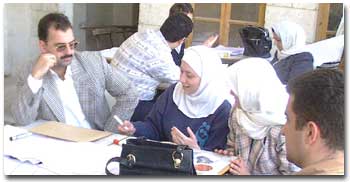Soft
|
Hard
|
Principled
|
|
|
Participants are friends.
|
Participants are adversaries.
|
Participants are problem-solvers.
|
|
The goal is agreement.
|
The goal is victory.
|
The goal is a wise outcome reached efficiently and amicably.
|
|
Make concessions to cultivate the relationship.
|
Demand concessions as a condition of the relationship.
|
Separate the people from the problem.
|
|
Be soft on the people and the problem.
|
Be hard on the problem and the people.
|
Be soft on the people, hard on the problem.
|
|
Trust others.
|
Distrust others.
|
Proceed independent of trust.
|
|
Change your position easily.
|
Dig into your position.
|
Focus on interests, not positions
|
|
Make offers.
|
Make threats.
|
Explore interests.
|
|
Disclose your bottom line.
|
Mislead as to your bottom line.
|
Avoid having a bottom line.
|
|
Accept one-sided losses to reach agreement.
|
Demand one-sided gains as the price of agreement.
|
Invent options for mutual gain.
|
|
Search for the single answer: the one they will accept.
|
Search for the single answer: the one you will accept.
|
Develop multiple options to choose from; decide later.
|
|
Insist on agreement.
|
Insist on your position.
|
Insist on using objective criteria.
|
|
Try to avoid a contest of will.
|
Try to win a contest of will.
|
Try to reach a result based on standards independent of will.
|
|
Yield to pressure.
|
Apply pressure.
|
Reason and be open to reason; yield to principle, no to pressure.
|
Table from: Getting to Yes, Negotiating Agreement Without Giving In. Second edition. Fisher, Roger Ury, Williand Patton, Bruce of the Harvard Negotiation Project. (New York: Penguin Books, 1991) 13.
|

